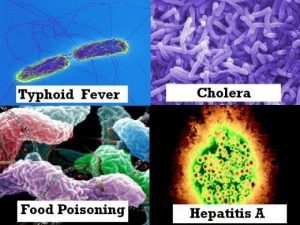- Home
- Editorial
- News
- Practice Guidelines
- Anesthesiology Guidelines
- Cancer Guidelines
- Cardiac Sciences Guidelines
- Critical Care Guidelines
- Dentistry Guidelines
- Dermatology Guidelines
- Diabetes and Endo Guidelines
- Diagnostics Guidelines
- ENT Guidelines
- Featured Practice Guidelines
- Gastroenterology Guidelines
- Geriatrics Guidelines
- Medicine Guidelines
- Nephrology Guidelines
- Neurosciences Guidelines
- Obs and Gynae Guidelines
- Ophthalmology Guidelines
- Orthopaedics Guidelines
- Paediatrics Guidelines
- Psychiatry Guidelines
- Pulmonology Guidelines
- Radiology Guidelines
- Surgery Guidelines
- Urology Guidelines
1 in 3 swimming-related disease outbreaks occur at hotels

A third of treated recreational waterborne disease outbreaks during 2000 through 2014 occurred in hotel pools or hot tubs, according to a report published today in CDC’s Morbidity and Mortality Weekly Report.
Cryptosporidium (also known as “Crypto”), Pseudomonas, and Legionellacaused most of the outbreaks in swimming venues in the United States during this time period. Crypto is a parasite tough enough to survive even in properly maintained pools. Pseudomonas and Legionella are bacteria that can survive disinfectants in slimy areas of hot tubs, pools, and water playgrounds.
The report describes mixed progress in preventing outbreaks caused by germs spread through treated recreational water. The 493 outbreaks reported during this period resulted in at least 27,219 illnesses and eight deaths. The number of respiratory disease outbreaks caused by Legionella increased over time and skin infection outbreaks caused by Pseudomonas decreased over time. Diarrheal disease outbreaks caused by Cryptosporidium leveled off during 2008 through 2014. More than half of outbreaks started in the summer, the peak season for swimming.
Common parasite remains the leading cause of illness from pools
Crypto causes 58 percent of outbreaks where a germ was identified linked to pools, hot tubs, and water playgrounds and 89 percent of the illnesses. Crypto spreads in pools when someone sick with the parasite has diarrhea in the water and other swimmers swallow that contaminated water. Swimmers and parents of young swimmers play an essential role in preventing Crypto outbreaks.
“Swallowing just a mouthful of water with Crypto in it can make otherwise healthy kids and adults sick for weeks with watery diarrhea, stomach cramps, nausea, and vomiting,” said Michele Hlavsa, R.N., M.P.H., chief of CDC’s Healthy Swimming Program. “Chlorine cannot kill Crypto quickly. We need to keep it out of the water in the first place. Don’t go into the water, and don’t let your kids go into the water, if sick with diarrhea.”
Bacteria cause respiratory illness and skin rashes
The bacteria Legionella and Pseudomonas are the next most leading causes of these outbreaks, with 16 percent of outbreaks caused by Legionella and 13 percent caused by Pseudomonas. Legionella can cause severe pneumonia and symptoms similar to the flu. Pseudomonas can cause hot tub rash and swimmer’s ear.
If a pool, hot tub, or water playground is not cleaned properly, bacteria can grow and form a slime called biofilm on wet surfaces. Legionella and Pseudomonas can live in this biofilm. It is harder for disinfectants to kill these bacteria when they are protected by biofilm. Pool operators need to maintain proper cleaning practices and disinfectant levels to prevent bacteria from growing and causing illnesses in swimmers. CDC provides specific recommendations for operating public pools, hot tubs and water playgrounds in the Model Aquatic Health Code.
Some people are more likely to get sick from Legionella, including people 50 years or older, current or former smokers, people with chronic lung disease, and people with a weakened immune system. These people should see a doctor right away if they develop pneumonia symptoms and let the doctor know about any possible exposures to Legionella, including recent hot tub use.
Protect yourself and your family from germs spread through the water we swim in and share
Take the following steps to protect yourself and loved ones from germs when swimming in pools, soaking in hot tubs, or visiting water playgrounds:
- Don’t swim or let your kids swim if sick with diarrhea. If Crypto is the cause of diarrhea, wait until 2 weeks after diarrhea has stopped to go swimming.
- Check the pools, hot tubs, and water playground inspection scores.
- Before getting in the water, use a test strip from your local retailer or pool supply store to check if the water’s pH and bromine or free chlorine level are correct.
- Don’t swallow the water.
- Take kids on bathroom breaks hourly, and change diapers in a diaper-changing area and away from the water.
Healthy and Safe Swimming Week
Healthy and Safe Swimming Week begin on May 21. CDC encourages swimmers to help protect themselves, family and friends from germs and encourages the aquatics sector to follow recommendations for the design, construction, operation, and management of recreational water facilities. For more information and other healthy and safe swimming steps.
For further information click on the link: http://dx.doi.org/10.15585/mmwr.mm6719a3

Disclaimer: This site is primarily intended for healthcare professionals. Any content/information on this website does not replace the advice of medical and/or health professionals and should not be construed as medical/diagnostic advice/endorsement or prescription. Use of this site is subject to our terms of use, privacy policy, advertisement policy. © 2020 Minerva Medical Treatment Pvt Ltd